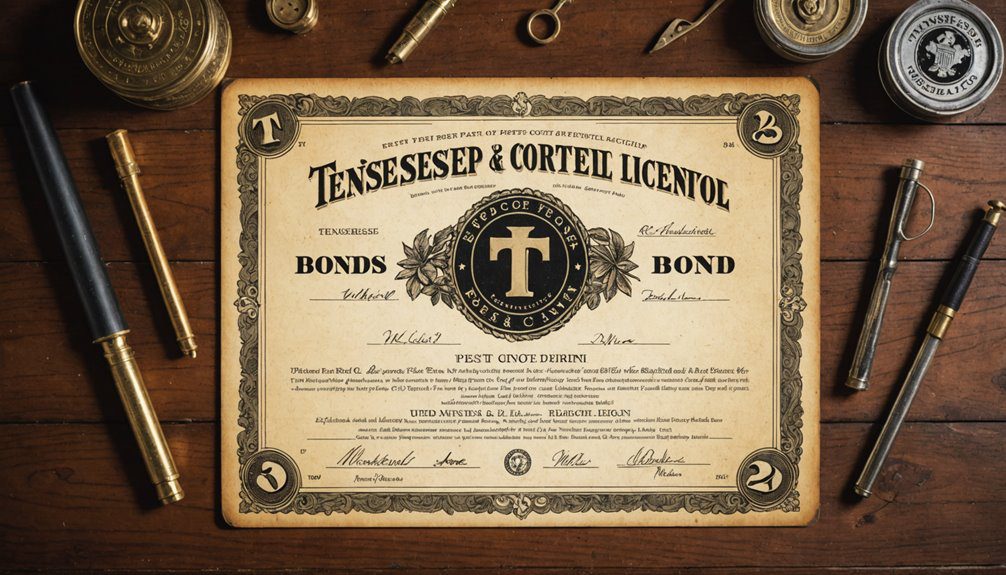If you're involved in pest control in Tennessee, you probably know about the necessity of a Pest Control License Bond. This bond isn't just a formality; it's a critical requirement imposed by the state to ensure that your business operates ethically and meets regulatory standards. Understanding its implications can significantly impact your operations and client trust. But what happens if you neglect to maintain this bond, or are there common misconceptions that could affect your compliance? Let's explore these aspects further.
Understanding the License Bond
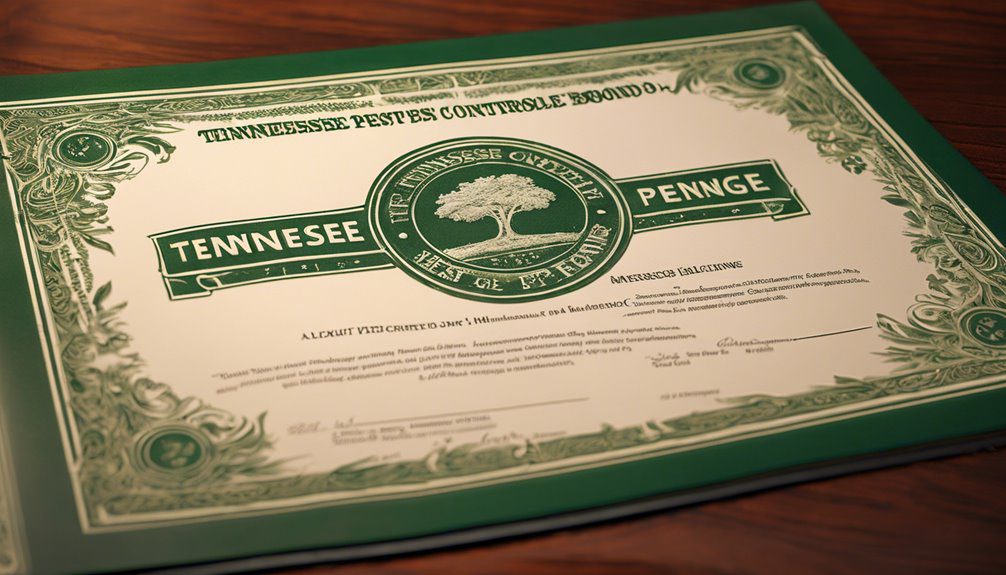
When you're looking to operate a pest control business in Tennessee, understanding the license bond is crucial. This bond acts as a financial guarantee that you'll comply with state regulations and perform your services responsibly.
Essentially, it protects your clients and the public from potential damages or misconduct associated with your business operations. The bond ensures that if a customer suffers a loss due to your negligence or failure to follow the law, they can seek compensation.
It's a way for your clients to feel secure when hiring you, knowing there's a safety net in place. In Tennessee, the required bond amount can vary, so it's essential to check with the state's Department of Agriculture for the specifics.
You'll need to work with a surety company to obtain the bond, which will assess your business's financial stability and operational history before issuing it. Additionally, similar to Louisiana Surety Bonds, understanding your obligations and the specific bond requirements is vital for compliance.
Who Requires the Bond
Obtaining a pest control license bond is essential for anyone looking to operate legally in Tennessee. If you're planning to offer pest control services, whether as a sole proprietor or part of a larger company, you'll need this bond. It's not just a formality; it's a requirement set by the state to ensure you're compliant with industry regulations.
The Tennessee Department of Agriculture mandates that all pest control operators secure a bond before they can obtain their license. This means if you're involved in any pest control activities, you must have this bond in place. It serves to protect your clients and the public from any potential misconduct or failures in service.
In addition to individual operators, companies providing pest control services must also obtain a bond. If you're an employee or a contractor working under a licensed company, the responsibility for the bond may fall on the business itself.
However, being aware of these requirements is crucial for your role in the industry. Make sure you understand your specific obligations to avoid any legal issues down the line. A pest control license bond is necessary for compliance with regulations that govern the industry.
Benefits of the License Bond
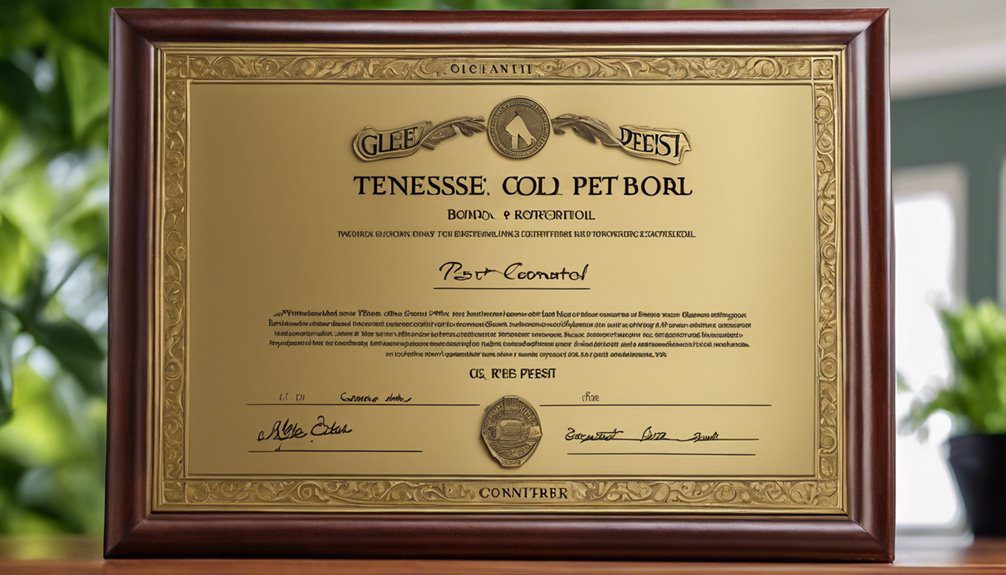
A pest control license bond offers several key benefits that can significantly enhance your business operations in Tennessee. First, it establishes your credibility and professionalism in the eyes of potential clients. When they see you have a bond, they'll feel more secure knowing you're committed to ethical practices and adhering to industry standards.
Additionally, this bond protects your business from financial losses due to claims or violations. If a customer files a complaint against you, the bond can cover damages, ensuring that you're not left in the lurch. This protection not only safeguards your finances but also helps maintain your reputation.
Moreover, having a bond can give you a competitive edge in the market. Clients often prefer working with licensed and bonded pest control companies, as it demonstrates a commitment to quality and accountability. This can lead to increased customer trust and loyalty, ultimately resulting in more business opportunities. Furthermore, securing the appropriate surety bonds is often contingent on licensing, which reinforces the importance of compliance in your industry.
Application Process Overview
Having a pest control license bond is just the beginning; understanding the application process is vital for securing your bond and ensuring compliance with state regulations.
First, you'll need to gather the necessary documentation, including your business license, proof of insurance, and any required certifications. Check with the Tennessee Department of Agriculture for specific requirements related to your pest control services.
Next, you'll want to find a reputable surety bond provider. Reach out to several companies to compare terms and conditions.
Once you've chosen a provider, fill out the application form accurately and thoroughly. Be prepared to provide details about your business operations and financial history, as these factors can influence your bond approval.
After submitting your application, the surety will review it and may require additional information or documentation.
If your application is approved, you'll receive your bond, which you must file with the appropriate state agency.
Bond Amount and Costs
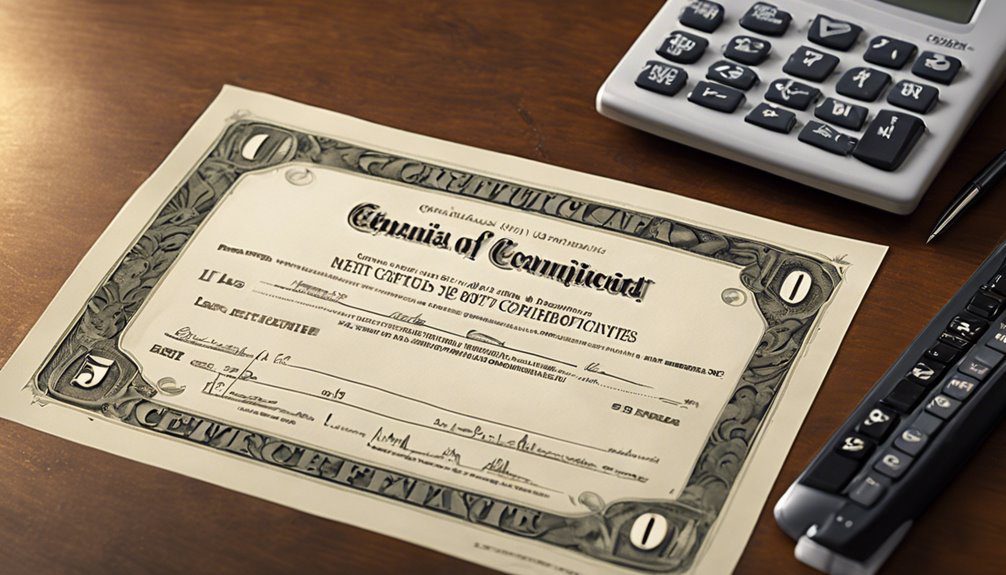
Determining the bond amount and associated costs is crucial for pest control operators in Tennessee. The required bond amount typically ranges from $10,000 to $25,000, depending on the services you provide and your business's specific needs.
It's important to check with the Tennessee Department of Agriculture to confirm the exact amount required for your licensing.
When you apply for a bond, you'll encounter several costs. First, there's the premium you'll pay to the surety company, which usually ranges from 1% to 15% of the bond amount.
Factors that influence your premium include your credit score, business history, and the type of pest control services you offer. If you have a strong financial background, you might secure a lower premium.
Additionally, you may face administrative fees from the surety company, which can vary. It's wise to shop around and compare rates from different surety providers to find the best deal.
Keep in mind that while lower costs may be appealing, the reputation and reliability of the surety company are essential for your peace of mind and business success.
Maintaining Your Bond
To keep your pest control bond in good standing, it's essential to stay proactive throughout its duration.
Begin by understanding the specific requirements outlined in your bond agreement. Make sure you're aware of the coverage limits and any obligations you have toward clients and regulatory bodies.
Regularly review your business practices to ensure compliance with state regulations. This includes keeping your pest control license updated and adhering to safety protocols.
Any violations could jeopardize your bond, leading to potential claims against it.
Maintaining good relationships with clients is equally important. Respond promptly to their concerns and ensure any issues are resolved quickly. A good reputation can help shield you from bond claims and demonstrate your commitment to quality service.
Additionally, pay attention to renewal dates. Stay on top of any required documentation and fees to avoid lapses in coverage.
If you encounter financial difficulties, communicate with your surety bond provider. They might offer solutions to help you maintain your bond. Also, remember that surety bonds promote accountability within various industries, which is crucial for maintaining trust and compliance.
Common Misconceptions
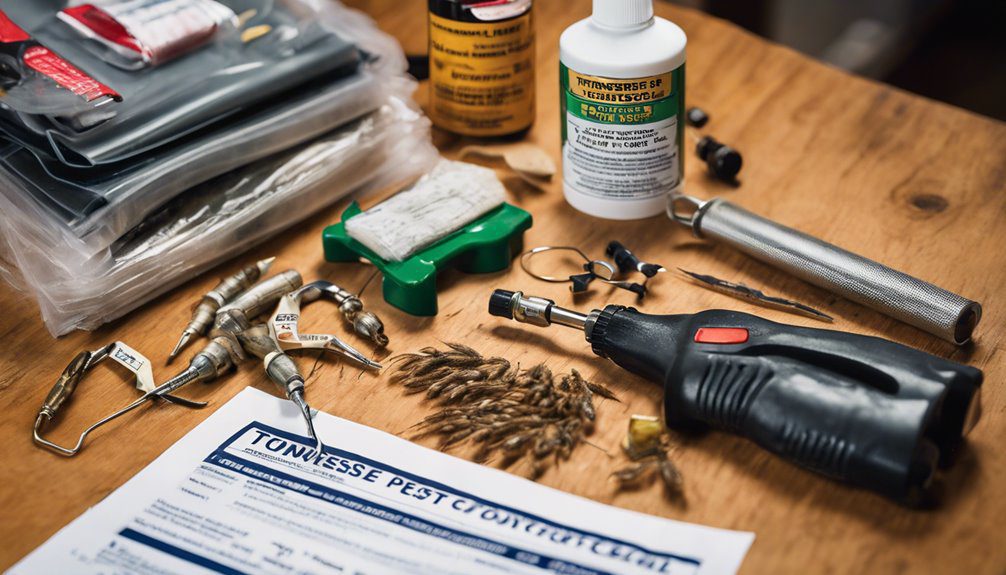
Many pest control operators hold misconceptions about their license bonds that can lead to confusion and complications.
One common belief is that having a bond guarantees you'll never face claims or legal issues. In reality, the bond serves as a financial safety net, helping clients recover losses if you fail to meet your contractual obligations. It doesn't protect you from lawsuits or claims you may face.
Another misconception is that the bond covers all types of damages. Many operators think that the bond will pay for any issue that arises in their business. However, it typically only covers specific breaches of contract and doesn't extend to general liabilities or negligence.
Some also believe that once they obtain a bond, they don't need to worry about it anymore. Bonds require regular renewal and compliance with state regulations, so you must stay informed about any changes to maintain your coverage.
Lastly, many operators assume that all bonds are the same. In reality, the amount and type of bond you need can vary based on the services you provide and your location. Always check with your local authorities to ensure you're meeting all requirements.
Conclusion
In summary, securing your Tennessee pest control license bond is essential for operating legally and building trust with your clients. This bond not only protects your customers but also enhances your business's reputation. By understanding the requirements and benefits, you're better equipped to navigate the application process and maintain compliance. Don't overlook this crucial step—investing in a license bond ensures your pest control business thrives while safeguarding your clients' interests.

